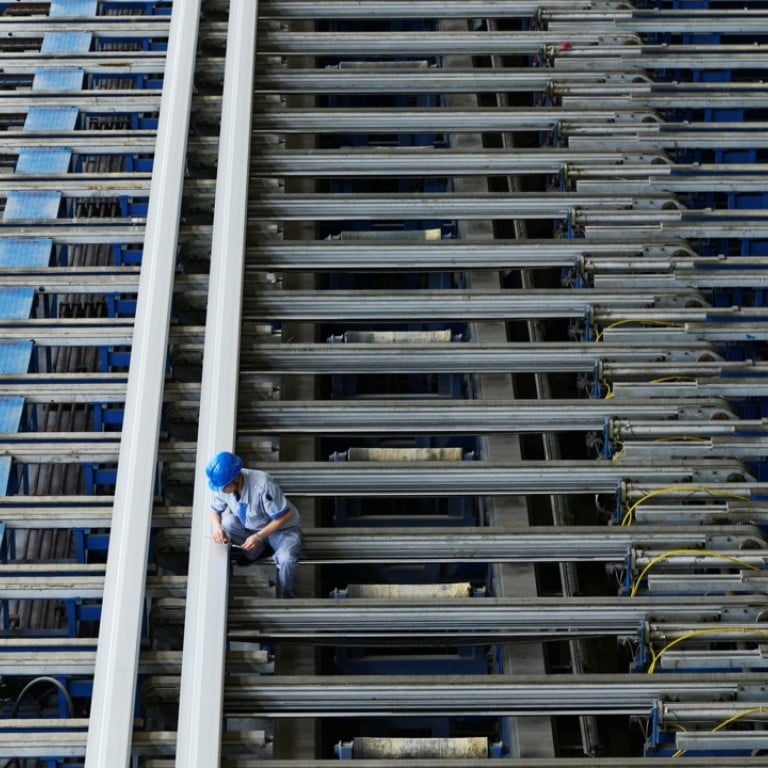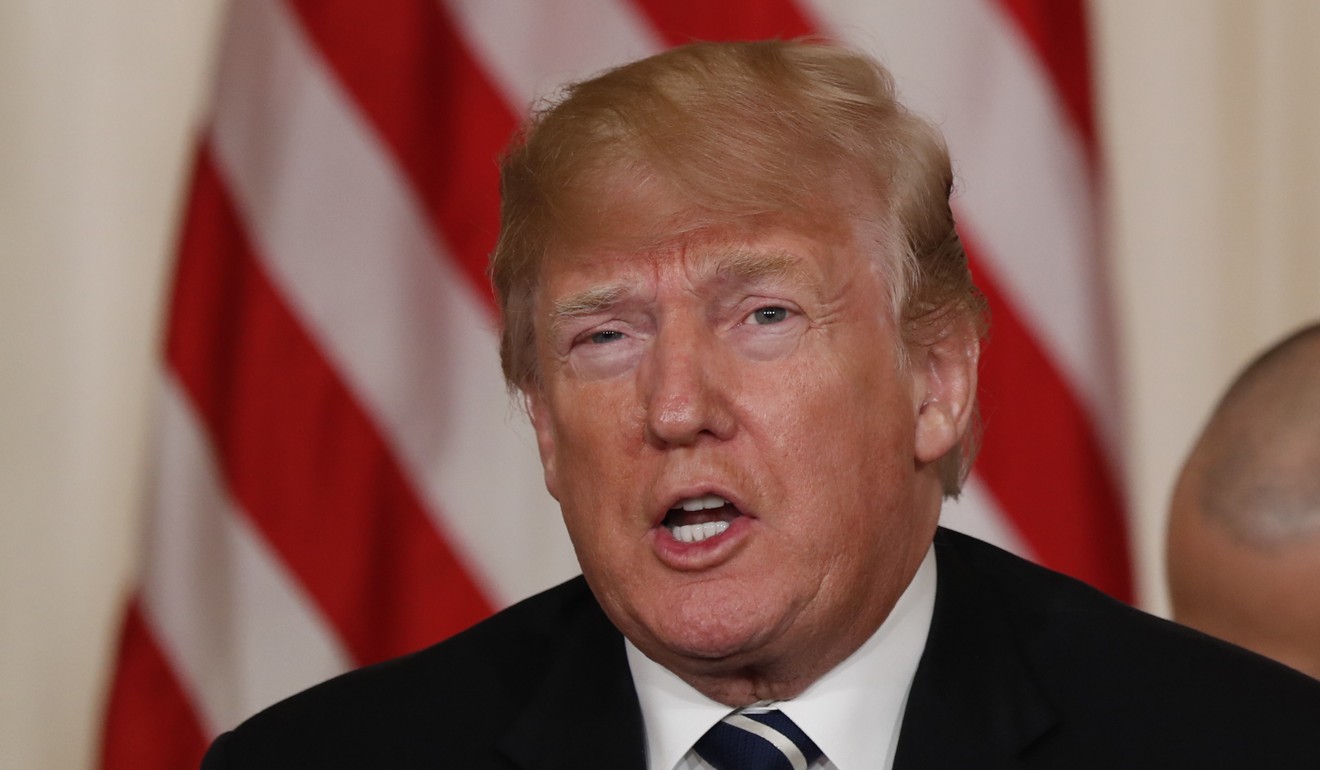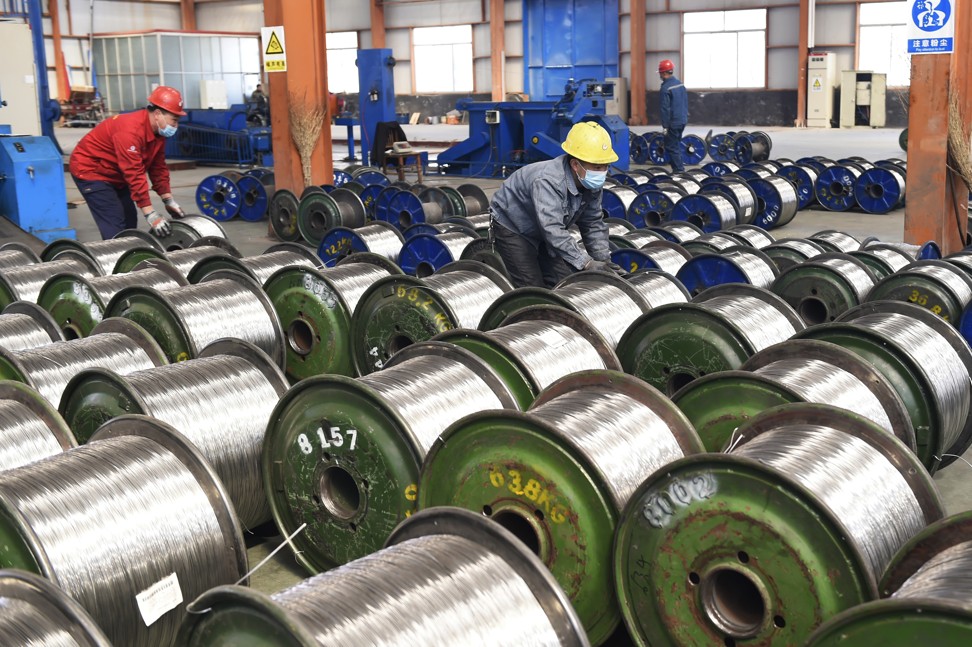
Aluminium sheet imports from China are being subsidised, US finds
Washington sets countervailing duties of up to 113 per cent
The US Commerce Department said on Tuesday it has made a preliminary determination that common alloy aluminium sheet imports from China are being subsidised, and set countervailing duties of up to 113 per cent.
Imports of common alloy aluminium sheet from China were valued at an estimated US$600 million in 2016, the department said in a statement.
A final determination in the countervailing duty investigation is scheduled to be announced on August 30, it said.
The Aluminum Association, a US trade group, welcomed the decision. “This is an important first step to begin restoring a level playing field for US aluminium sheet production,” the group’s president, Heidi Brock, said in a statement.
The department’s preliminary finding comes as US President Donald Trump has threatened to slap tariffs on some US$150 billion of Chinese goods to try to force changes in China’s industrial policies.

The Commerce Department launched the investigation of imports of Chinese aluminium alloy sheet in November, the first US-initiated anti-subsidy and anti-dumping probes in decades.
Washington’s seldom-used tactic is aimed at accelerating the imposition of duties against what are determined to be unfairly subsidised and dumped products. US companies and industries claiming injury from imports would normally first ask the Commerce Department to open such investigations, but government-initiated cases skip that step.
The department said it calculated a preliminary subsidy rate of 31.20 per cent for Yong Jie New Material; a rate of 34.99 per cent for Henan Mingtai Industrial and Zhengzhou Mingtai Industry; and a rate of 113.30 per cent for Chalco Ruimin and Chalco-SWA Cold Rolling.
The preliminary subsidy rate for all other Chinese producers and exporters is 33.10 per cent, the department said.
Separately, Washington has told the World Trade Organisation it has agreed to discuss with Beijing the Trump administration’s efforts to slap tariffs on steel, aluminium and an array of goods from China.
A Geneva-based trade official on Tuesday said the move was an expected, but not mandatory, step that buys Washington time to flesh out its differences with Beijing.
China requested the discussions about US tariffs on steel and aluminium imports that the administration has defended on national security grounds, and the possibility of US tariffs on 1,300 Chinese goods. The tariffs on the goods have been billed as a penalty for Beijing forcing US companies to hand over technology to obtain access to China’s market.

The official said the United States had agreed to the discussions, known as consultations in WTO parlance, without yielding about its belief that the tariffs are justified. The official requested anonymity since he was not authorised to speak publicly about the discussions.
The United States has argued that the proposed tariffs on goods like electronics and machinery have not been levied yet, so China’s request was not justified under WTO dispute settlement rules.
Also on Tuesday, India requested consultations with the United States over the steel and aluminium tariffs, seeking to maintain a similar level of concessions from the US – mirroring a similar move a day earlier by the European Union.
Critics of the US tariffs on the metals accuse Washington of unfairly trying to defend a national industrial sector under the guise of national security concerns.
Mexico and Canada – US trading partners under the Nafta agreement – are among countries that have won temporary exemptions to the otherwise blanket tariffs on US imports of aluminium and steel.
Additional reporting by Reuters, Associated Press


